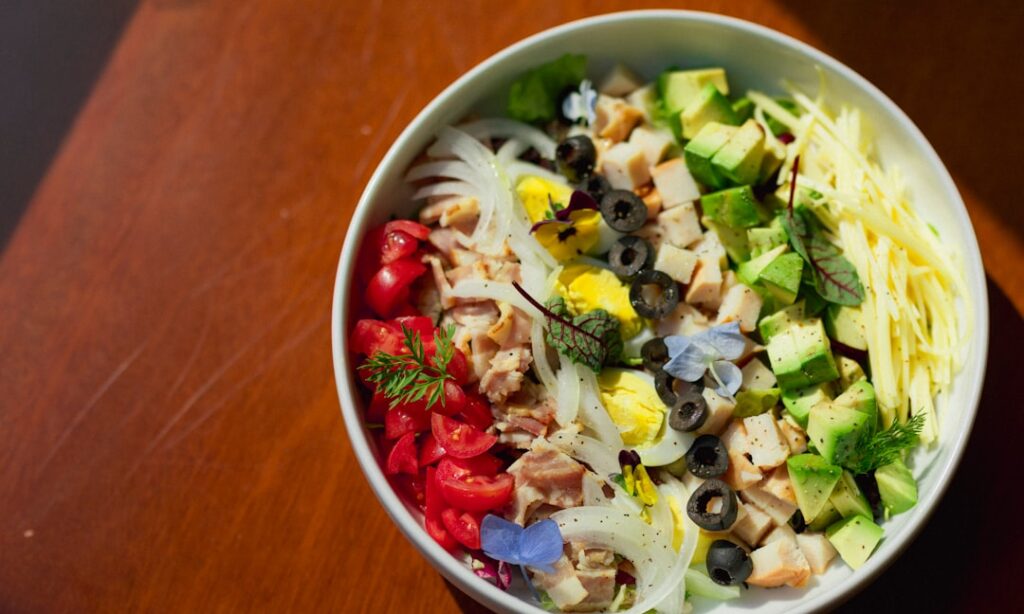Unlock Weight Loss: Essential Gut Health Foods You Need
Do you ever feel like you’re doing everything right for weight loss – counting calories, exercising regularly – yet the scale barely budges, or worse, creeps back up? It’s a frustrating, often disheartening experience that many people face. You might be meticulously tracking macros, but what if the true key to unlocking sustainable weight loss isn’t just what you eat, but how your body processes it? The answer, increasingly supported by scientific research, lies deep within your digestive system: your gut health.
Emerging science points to a powerful connection between your gut microbiome and your body’s ability to manage weight. It’s a concept that moves beyond the simplistic “calories in, calories out” model, offering a profound understanding of metabolic function. This article delves into how optimizing your gut health can be a game-changer for weight management, focusing on key gut health weight loss foods that can help you transform your approach to well-being.
The Hidden Connection: How Your Gut Microbiome Impacts Weight
Imagine your gut as a bustling city, teeming with trillions of microorganisms – bacteria, viruses, fungi, and other microbes – collectively known as the gut microbiome. This microscopic ecosystem plays a surprisingly significant role in virtually every aspect of your health, from immunity and mood to, crucially, your metabolism and body weight. When this ecosystem is balanced, it works harmoniously to support your health. When it’s out of whack – a condition known as dysbiosis – it can throw your entire system into disarray, making weight loss feel like an uphill battle.
How does your gut impact your weight? It’s multifaceted:
- Metabolism Regulation: Certain gut bacteria are more efficient at extracting calories from food. A microbiome dominated by these bacteria can lead to more calories being absorbed and stored as fat, even from the same amount of food.
- Hormone Balance: Your gut influences the production and sensitivity of hormones like ghrelin (the hunger hormone) and leptin (the satiety hormone). Dysbiosis can disrupt these signals, leading to increased appetite and difficulty feeling full. It also impacts insulin sensitivity, a critical factor in fat storage.
- Inflammation: An unhealthy gut lining can become permeable, allowing toxins to leak into the bloodstream (often called “leaky gut”). This triggers systemic inflammation, which is closely linked to insulin resistance, metabolic syndrome, and weight gain.
- Nutrient Absorption: A healthy gut ensures optimal absorption of essential vitamins and minerals, contributing to sustained energy levels and proper bodily function, which in turn supports a healthy metabolism.
Research consistently highlights this critical link. A comprehensive review published in Nature Reviews Endocrinology (2020) titled “The Gut Microbiota and Its Role in Obesity and Diabetes” emphasizes how specific microbial compositions are associated with increased risk of obesity and type 2 diabetes, influencing energy harvest, fat storage, and inflammation pathways. Understanding this connection is the first step toward a more holistic and effective weight management strategy.
(Image Suggestion: An infographic illustrating the gut-brain axis and how gut microbes communicate with the brain, influencing appetite, mood, and metabolism.)
Navigating the Modern Diet: A Gut-Wrenching Problem
Our modern lifestyle, unfortunately, is often a recipe for gut dysbiosis. The prevalence of processed foods, high sugar intake, chronic stress, overuse of antibiotics, and insufficient fiber intake all contribute to an imbalanced gut microbiome. These factors create an environment where beneficial bacteria struggle to thrive, allowing less desirable microbes to take over.
Consider “Sarah’s Story.” For years, Sarah, a 38-year-old marketing professional, struggled with her weight. Despite diligently trying various restrictive diets and hitting the gym regularly, she found herself constantly battling cravings, experiencing bloating, and feeling perpetually tired. Each diet felt like a temporary fix, inevitably leading to rebound weight gain. It wasn’t until a nutritionist suggested focusing on her gut health that things began to change. Sarah had been unknowingly fueling an unhealthy microbiome with processed snacks and sugary drinks, compounded by job stress and occasional antibiotic use for sinus infections. Once she started incorporating specific gut-friendly foods and stress management techniques, her energy levels improved, her cravings diminished, and she began to lose weight steadily, feeling more vibrant than ever before.
As Dr. Emeran Mayer, a leading gastroenterologist and author of “The Mind-Gut Connection,” often explains, “The modern diet, rich in processed foods and poor in fiber, starves the beneficial microbes, allowing inflammatory ones to proliferate. This shift isn’t just felt in your digestion; it sends signals to your brain that can drive overeating and metabolic dysfunction.” This expert perspective underscores the profound impact our dietary choices have on this crucial internal ecosystem.
The Power of Your Plate: Top Gut Health Weight Loss Foods
The good news is that you have immense power to reshape your gut microbiome through your diet. By strategically incorporating specific foods, you can cultivate a thriving internal garden that supports a healthy weight and overall well-being. Here are 5 key gut health weight loss foods to prioritize:
1. Fermented Foods: Probiotic Powerhouses for a Balanced Gut
Fermented foods are rich in beneficial bacteria (probiotics) that directly replenish and diversify your gut microbiome. These live microorganisms can improve digestion, enhance nutrient absorption, and may even influence satiety and metabolism.
- Examples: Kimchi, sauerkraut, plain Greek yogurt, kefir, tempeh, miso.
- How they help: They introduce a diverse range of beneficial bacteria strains, aiding in the breakdown of food, producing short-chain fatty acids (SCFAs) like butyrate (which nourish gut cells), and potentially reducing inflammation.
- Tip: Start with small portions and gradually increase. Ensure products contain “live and active cultures.”
(Image Suggestion: A colorful collage of various fermented foods like kimchi, yogurt, kefir, and kombucha.)
2. Fiber-Rich Legumes: Fuel for a Thriving Microbiome
Legumes are superstars when it comes to dietary fiber, particularly soluble fiber, which acts as a prebiotic. Prebiotics are non-digestible food components that selectively stimulate the growth and activity of beneficial gut bacteria.
- Examples: Lentils, chickpeas, black beans, kidney beans, peas.
- How they help: Their high fiber content promotes satiety, helping you feel fuller for longer and reducing overall calorie intake. The fiber also ferments in the colon, producing SCFAs that have anti-inflammatory effects and can improve insulin sensitivity.
- Tip: Soak dried beans overnight to improve digestibility and reduce cooking time. Incorporate them into soups, salads, or stews.
3. Leafy Greens & Colorful Veggies: Diverse Nutrients, Diverse Gut
A wide variety of fruits and vegetables, especially leafy greens and vibrant colorful ones, are fundamental for gut health. They offer a diverse array of fibers, vitamins, minerals, and antioxidants that protect your gut and feed a broad spectrum of beneficial bacteria.
- Examples: Spinach, kale, broccoli, cauliflower, Brussels sprouts, bell peppers, berries.
- How they help: The diverse fiber content promotes microbial diversity, a hallmark of a healthy gut. Antioxidants reduce oxidative stress and inflammation, supporting the integrity of the gut lining. Many also contain unique prebiotics.
- Tip: Aim for a “rainbow” on your plate. Try to eat 5-7 different colors of fruits and vegetables daily to ensure a wide range of nutrients and fibers.
4. Healthy Fats (Omega-3s): Taming Inflammation and Boosting Satiety
While often feared in traditional weight loss narratives, healthy fats are crucial for gut health and overall metabolism. Omega-3 fatty acids, in particular, are powerful anti-inflammatory agents that can support gut barrier function and influence metabolic pathways.
- Examples: Fatty fish (salmon, mackerel, sardines), flax seeds, chia seeds, walnuts, avocado, extra virgin olive oil.
- How they help: Omega-3s reduce systemic inflammation, which can improve insulin sensitivity and reduce fat storage. They also promote satiety, helping to manage appetite. Harvard Health Publishing highlights their role in reducing chronic inflammation, which is a common barrier to weight loss.
- Tip: Incorporate fatty fish at least twice a week. Add flax or chia seeds to smoothies or oatmeal daily.
5. Whole Grains: Sustained Energy & Gut Support
Unlike refined grains that are stripped of their beneficial components, whole grains retain their bran, germ, and endosperm, packing them with fiber, vitamins, and minerals. They are excellent sources of prebiotics and provide sustained energy.
- Examples: Oats, quinoa, brown rice, barley, farro, whole wheat bread (in moderation).
- How they help: The complex carbohydrates and fiber in whole grains provide a steady release of energy, preventing blood sugar spikes and crashes that can lead to cravings. The fiber also acts as a prebiotic, nourishing beneficial gut bacteria and promoting healthy bowel movements.
- Tip: Swap refined grains for whole grain alternatives. Be mindful of portion sizes, as even healthy whole grains contribute calories.
Beyond the Plate: Cultivating a Gut-Friendly Lifestyle
While specific gut health weight loss foods are fundamental, a holistic approach to gut health involves more than just diet. Lifestyle factors significantly impact your microbiome and, consequently, your weight management journey.
Stress Management: The Gut-Brain Axis Revisited
The gut and brain are intimately connected through the gut-brain axis, a bidirectional communication system. Chronic stress sends signals to your gut, altering its motility, increasing permeability, and shifting microbial composition. This can lead to digestive issues and even impact your metabolism. “Stress can literally change the chemical environment of your gut, affecting which bacteria thrive,” notes Dr. Robin Chutkan, a gastroenterologist and author. “Managing stress is as critical as what you eat for gut health.”
- Strategies: Incorporate mindfulness practices like meditation or deep breathing, ensure adequate and restorative sleep (7-9 hours per night), and engage in hobbies that bring you joy and relaxation.
Hydration & Movement: Essential Allies for Gut Health
Often overlooked, sufficient hydration and regular physical activity are powerful allies for a healthy gut.
- Hydration: Water is essential for every bodily function, including digestion. It helps to move food through your digestive tract, prevents constipation, and supports the integrity of the gut lining. Aim for at least 8 glasses of water daily.
- Movement: Physical activity doesn’t just burn calories; it also promotes gut motility and can positively influence the diversity of your gut microbiome. Even moderate exercise, like a daily walk, can make a difference.
Common Misconceptions About Gut Health Weight Loss
The growing interest in gut health has led to some misunderstandings. Separating fact from fiction is crucial for an effective and sustainable approach.
- Myth 1: All probiotics are the same, and supplements are a magic bullet. While probiotic supplements can be beneficial, they are not a one-size-fits-all solution. Different strains have different effects, and a diverse diet rich in fermented foods often provides a broader range of beneficial bacteria than a single supplement. Focus on food first, and consult a professional for supplement guidance.
- Myth 2: Restrictive diets are best for gut healing. Severely restrictive diets, especially those eliminating entire food groups without medical necessity, can actually reduce gut microbial diversity. A balanced, varied diet rich in whole foods is generally more beneficial for long-term gut health.
- Myth 3: You’ll see results overnight. Transforming your gut microbiome takes time and consistency. Just like any ecosystem, it needs nurturing to flourish. Expect gradual improvements over weeks and months, not days. Patience and persistence are key.
Your Journey to a Healthier Gut, a Lighter You
Embracing a gut-centric approach to weight loss is not just another fleeting diet trend; it’s a fundamental shift in how we understand our bodies and well-being. By focusing on nourishing your internal ecosystem with diverse gut health weight loss foods and adopting supportive lifestyle practices, you empower your body to naturally find its balance. This journey is about more than shedding pounds; it’s about reducing inflammation, improving energy, stabilizing mood, and fostering a deeper connection with your body’s innate wisdom.
Remember, small, consistent changes yield significant results. Start by incorporating one new gut-friendly food into your diet each week, or dedicating 15 minutes daily to stress reduction. As your gut microbiome rebalances, you may discover renewed vitality, fewer cravings, and a more effortless path to a healthier weight. Begin this transformative journey today, and trust your gut to lead the way.
Sources:
- Fan, Y., & Pedersen, O. (2020). The gut microbiota and its role in obesity and diabetes. Nature Reviews Endocrinology, 16(9), 503–515.
- Harvard Health Publishing. (2023, June 28). Why are omega-3 fatty acids good for you? https://www.health.edu/staying-healthy/why-are-omega-3-fatty-acids-good-for-you
- Lee, J., & Kim, B. (2022, November 1). Dietary Strategies for Modulating the Gut Microbiota for Weight Management. Nutrients, 14(21), 4497.
Author Bio:
Dr. Eleanor Vance holds a PhD in Nutritional Sciences from the University of London and is a Registered Dietitian with over a decade of experience in clinical practice and health writing. Specializing in gut health and metabolic wellness, Dr. Vance is passionate about translating complex scientific research into actionable, evidence-based strategies for a healthier, happier life. She believes in a holistic approach to nutrition, empowering individuals to take control of their health through sustainable dietary and lifestyle changes.





